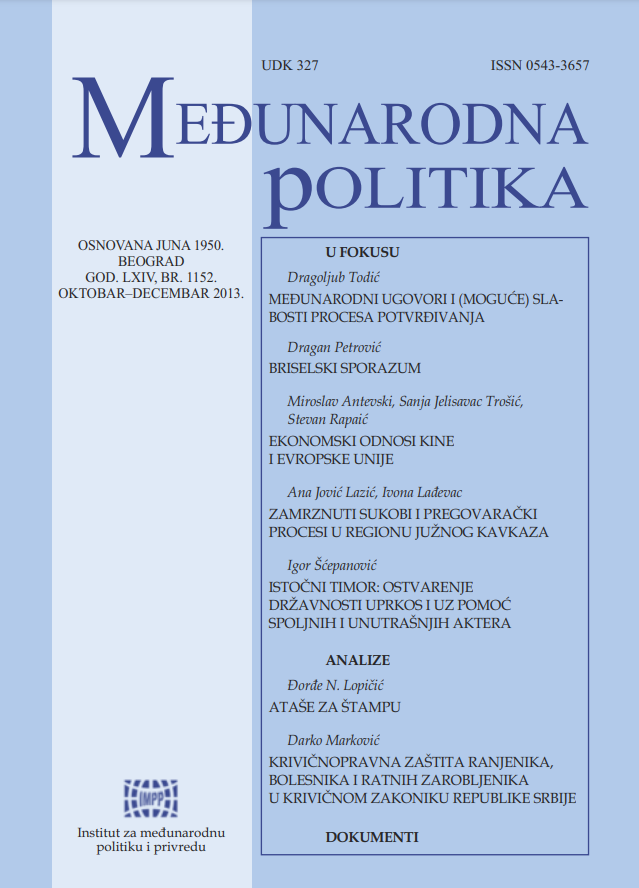Odgovornost međunarodnih organizacija u svetlu rada komisije za međunarodno pravo UN
The Responsibility of International Organizations in the Light of Work of the Un International Law Commission
Author(s): Mina NikolićSubject(s): International Law
Published by: Институт за међународну политику и привреду
Keywords: international organizations; negative operating effects; responsibility; Draft Articles on Responsibility of International Organizations;
Summary/Abstract: This article analyses Draft Articles on the Responsibility of International Organizations for Internationally Wrongful Acts of the United Nations International Law Commission from 2011. For decades, the question of legal nature of the acts committed by international organizations has been the subject of bitter debates among the theoreticians of international law. In contemporary international relations and in the international system which functions primarily by establishing inter-country relations, as well as by the increased participation of international organizations resulting from those relations, it is noticeable that these international, both governmental and non-governmental organizations, have taken over numerous functions, which were previously exclusive to the domains of states. It is a fact that some international organizations (UN, EU) establish universal standards for most areas of life, and thus influence the decreased independence of state decisions. In the meantime, some international organizations have expanded, this also including their authority and power. Hence, they have gained more important roles, what their founders could not anticipate. For that reason, it is not surprising that there is an increasing need to call international organizations to account for their activities. The interest in different forms of reparation for injuries has risen from the moment when negative effects of their operations became evident. The author's intention in this article is to review the Draft Articles on the Responsibility of International Organizations, which the International Law Commission introduced during the second reading on April 26, 2011 and which represent a further step in the codification of rules on the responsibility of international law subjects and has significant implications both for public international law and for future relations among international law subjects. A special emphasis is put on separate articles of the Draft, which leave the opportunity for different interpretations as well as for practical problems chiefly upon the characterisation whether certain behaviour is a wrongful act at all, regarding the international law standpoint, and later the attribution of that behaviour to the subjected international organization as well as the resulting legal consequences.
Journal: Међународнa пoлитика
- Issue Year: 64/2013
- Issue No: 1152
- Page Range: 209-233
- Page Count: 25
- Language: Serbian

